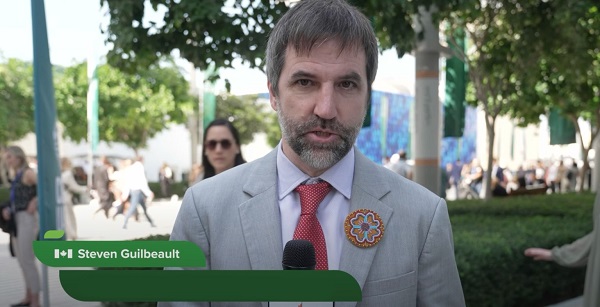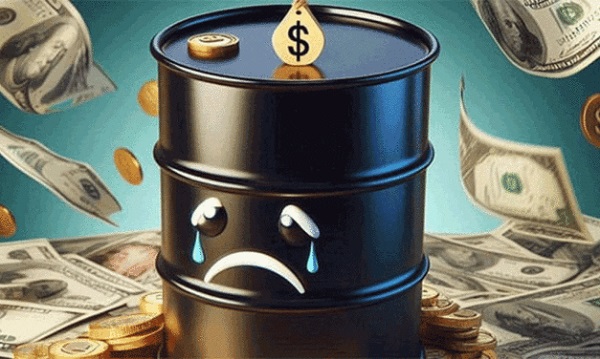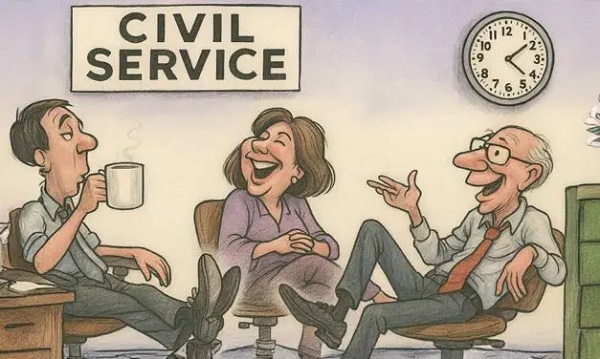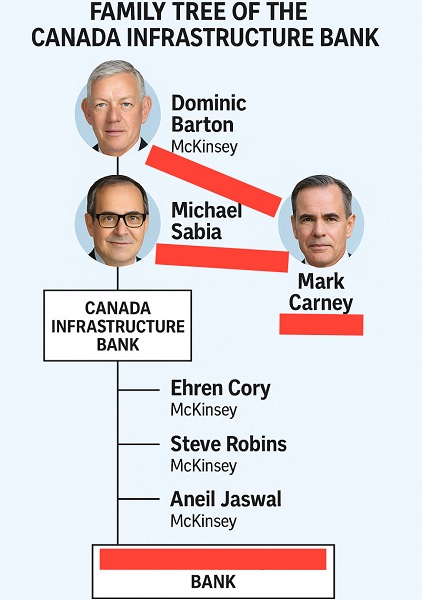International
Vienna court says Sharia law may be used in civil disputes, sparking outrage

From LifeSiteNews
An Austrian court upheld a Sharia-based arbitration ruling, prompting outrage from conservatives who warn it fosters ‘Islamic parallel societies.’
A court in Vienna has ruled that Sharia law may be applied in civil legal disputes between two parties in Austria.
The Vienna Regional Court for Civil Matters was concerned with a case between two Muslim men who had previously agreed to be judged by Islamic law in case of dispute.
This means that in the event of a dispute, the arbitration court – which rules according to Islamic law – can be convened. The dispute occurred, and the court ruled against one of the men and ordered him to pay a €320,000 ($372,000) fine.
However, the man sentenced to pay the penalty did not accept the ruling. He argued that the application of the law was arbitrary, as Sharia law could be interpreted in different ways. He furthermore claimed that invoking Sharia law violated the fundamental values of Austrian law.
The Vienna Regional Court ruled that the arbitration tribunal’s decision was valid. The court argued that the ruling did not contradict Austria’s fundamental values.
Islamic legal provisions, the regional court emphasized, could be “effectively agreed upon in an arbitration agreement” for property claims.
“There are no indications of a violation of public order or a possible arbitrary decision in this case, which is why none of the grounds for annulment that must be examined ex officio are present,” the court stated.
Conservative politicians and activists expressed their concern and outrage regarding the controversial decision.
Michael Schilchegger, constitutional spokesman for the Freedom Party (FPÖ), said the ruling fosters “Islamic parallel societies” and a weakens those “forces that do not want to submit to Islam.”
“If Austrian courts now also recognize arbitration awards based on ‘Sharia law,’ they are submitting to the will of fanatical Islamists,” he warned. He announced future legislative proposals to make it impossible for Austrian courts to recognize Sharia law in civil lawsuits.
Sharia law has “nothing to do with Austria and the principles of our constitution, and that’s how it should stay,” said Integration Minister Claudia Plakolm (ÖVP), who is part of Austria’s government coalition.
By the end of the year, the Ministry of Justice should draw up proposals “so that Sharia law cannot be applied in the future, for example in the area of civil marriage,” said Plakolm, who is confident “that we will receive the relevant proposals in a timely manner.”
Austrian anti-immigration activist and political commentator Martin Sellner said on X: “Under the guise of ‘private agreements,’ Sharia is entering the Austrian legal system.”
“Even though criminal aspects are excluded, this precedent opens the door to the gradual recognition of foreign legal systems,” he warned.
“For us, this means: remigration and the restoration of cultural sovereignty are more urgent than ever,” he concluded.
In recent years, uncontrolled mass migration has led to a significant increase in the Muslim population of Austria. According to a recent statistic, Islam is already the dominant religion in elementary and middle schools in Vienna. Approximately 41 percent of students in this age group are Muslim in Austria’s capital, while Christians only make up 34.5 percent (17.5 percent Catholic and 14.5 percent Orthodox).
Sharia law has also been recognized in other Western countries, such as the Canadian province of Ontario, where civil legal disputes may also be decided by Islamic law.
espionage
Starmer Faces Questions Over Suppressed China Spy Case, Echoing Trudeau’s Beijing Scandals
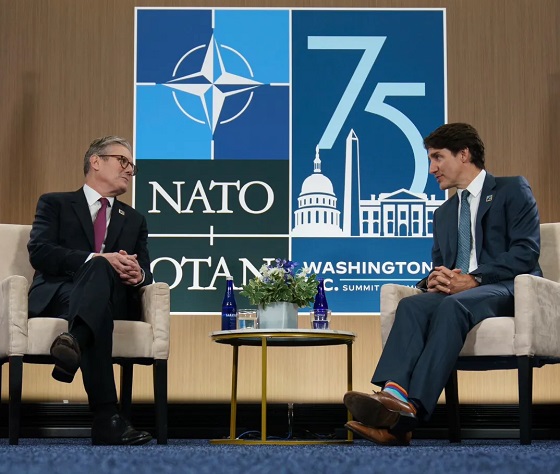
Alleged political meddling in a collapsed espionage case targeting Starmer’s China-critical opponents sparks crisis of confidence in Whitehall’s independence.
Keir Starmer’s government is undergoing a credibility crisis over national security, with the Prime Minister himself facing mounting questions about whether he wielded political influence to have Whitehall’s independent prosecution service abruptly drop a rare Official Secrets Act case alleging a China-directed political-intelligence network inside Parliament — one that reportedly targeted Starmer’s opponents critical of Beijing.
Two men — parliamentary researcher Christopher Cash and academic Christopher Berry — had been due to stand trial this autumn, accused of gathering sensitive political research from Westminster between late 2021 and February 2023, including on the China Research Group of Beijing-sceptic MPs, and funnelling it onward to a senior figure in the Chinese Communist Party.
“The government deliberately collapsed the trial of two people who spied on MPs for China. I’m one of the sanctioned MPs & we will get to the truth about who ordered this. I believe this goes all the way to the top,” Conservative MP Neil O’Brien wrote Sunday.
The geopolitical echoes of this case resonate far beyond Westminster. A similar pattern has unfolded in Canada, where Justin Trudeau’s Liberal government — also perceived as favouring trade and engagement with Beijing — was accused of turning a blind eye to intelligence warnings that China’s Ministry of State Security was gathering information on Conservative MPs critical of Beijing, including Michael Chong, who incurred China’s wrath by sponsoring a motion recognizing the CCP’s repression of Uyghurs as genocide.
Multiple outlets have reported that British intelligence believed the information gathered on Conservative MPs critical of China inside Whitehall was destined for Cai Qi, China’s fifth-ranking leader, a Politburo Standing Committee member and confidant of Xi Jinping. The Guardian’s reporting of Cai’s alleged role underscores the extraordinary level of authority to which information targeting British parliamentarians may have been directed. The China Research Group itself included high-profile MPs such as Iain Duncan Smith, Tom Tugendhat, and Neil O’Brien — all sanctioned by Beijing for their outspoken positions on Hong Kong, Xinjiang, and broader human-rights issues.
In Canada, a similar pattern emerged when Conservative MP Michael Chong was likewise sanctioned by China and later revealed as a target of Ministry of State Security intelligence-gathering. Justin Trudeau and his staff were accused of failing to alert Chong to Canadian intelligence reports forwarded to the Prime Minister’s senior officials, which detailed Beijing’s targeting of Chong and his family in Hong Kong.
The emerging evidence of parallels is striking: in both countries, during the same 2021 time period, legislators sanctioned and vilified by Beijing were simultaneously subjected to covert information-collection efforts — suggesting a coordinated strategy by the Chinese Communist Party to identify, monitor, and neutralise its most vocal democratic critics.
At the centre of the growing political storm in Whitehall is an allegation that echoes Justin Trudeau’s reported downplaying of threats against his Conservative opponents. In London, the claim is that Downing Street’s top security adviser, Jonathan Powell, decided the government would not permit China to be described in court as an “enemy” — language prosecutors believed was essential to meet the statute’s threshold. After that decision, the Crown Prosecution Service declared it could no longer proceed for “evidential reasons,” and the case collapsed. If accurate, the intervention would represent an extraordinary instance of political calculation colliding with the operational demands of counter-espionage.
With new reporting from Britain today, Starmer is coming under scrutiny for a potential motivation behind what would amount to improper meddling in an independent prosecution — driven, critics say, by Labour’s desire to sweeten relations with Beijing for economic reasons.
Downing Street’s official response to the dropped prosecution has only fuelled the political fire. The Prime Minister’s spokesperson said it was “extremely disappointing” that the CPS decision meant Cash and Berry would not face trial, insisting the decision was “made rightly independently of government.” That claim of independence, however, now looks increasingly hollow in light of Times and Telegraph reporting that the decisive instruction on the “enemy” wording originated from Starmer’s own national-security team.
The move — and the CPS’s refusal to explain why it could present no evidence — has triggered outrage across party lines. Former Conservative security minister Tom Tugendhat, joined by four other MPs, has written to Director of Public Prosecutions Stephen Parkinson demanding a full account of the decision to drop the case and clarification of any communications between the CPS, No. 10, and the Cabinet Office.
The legal explanation for the collapse of this explosive case is technical: the wording of the 1911 Official Secrets Act, which criminalised acts “useful to an enemy.” Prosecutors reportedly determined that to meet the statutory threshold, China would need to be explicitly designated an enemy — a label the current government refused to authorise.
The National Security Act 2023, which replaced the century-old statute, eliminates that outdated “enemy” clause and creates broader offences for “foreign interference” and “assisting a foreign power.” But the new law came into force only in December 2023 and cannot be applied retrospectively to alleged conduct that occurred between 2021 and 2023, according to several legal experts.
In Canada’s Foreign Interference Inquiry, Trudeau faced questioning on his government’s lack of response to CSIS’s “Targeting Paper” — a high-level intelligence document that described how Beijing collected information to classify which Canadian MPs could help China and which could hurt it, in apparent efforts to guide Beijing’s election interference and political influence campaigns.
Trudeau and his senior aides claim he was never informed of the explosive report. Drafted in 2021 and circulated to a small number of public servants in 2023, the Targeting Paper “named names” and outlined how Chinese diplomats categorised Canadian parliamentarians into three groups: those friendly towards Beijing, those neutral or persuadable, and those deemed antagonistic due to their criticism of China’s human-rights record, particularly on issues like the Uyghurs and Hong Kong.
Echoing the allegations now confronting Starmer’s government, Trudeau’s national security adviser and senior bureaucrats reportedly refused to adopt Canadian intelligence’s view that Beijing’s targeting of MPs represented a serious national-security threat that could undermine Canada’s sovereignty, testimony from Ottawa’s inquiry suggested.
In the hearings, Trudeau’s former senior officials Jody Thomas and Janice Charette defended their decisions not to escalate two high-impact 2022 intelligence reports on Chinese interference — including the Targeting Paper — to the Prime Minister.
Automotive
Big Auto Wants Your Data. Trump and Congress Aren’t Having It.


From the Daily Caller News Foundation
Congress is not going to allow Big Auto to sideline consumer privacy and safety while getting subsidized massively by the federal government.
That is because, in late September, by an overwhelming vote of 50 to 1, Chairman Brett Guthrie’s (R-KY) House Energy & Commerce Committee joined the Senate Commerce, Science, and Transportation Committee in passing the AM Radio for Every Vehicle Act.
This legislation is in response to some automakers removing AM radios from new model vehicles despite pleas from America’s public safety community not to do so.
Dear Readers:
As a nonprofit, we are dependent on the generosity of our readers.
Please consider making a small donation of any amount here.
Thank you!
“They’d rather force consumers to use their infotainment devices — which collect and sell their third-party data — than protect American lives,” Corey Lewandowski, President Trump’s 2016 campaign manager and senior adviser to his 2020 and 2024 campaigns, stated.
The entirety of America’s public safety community spanning the federal, state, and local levels, insists AM radio remaining in cars is critical for protecting the nation’s emergency alerting systems. These systems rely heavily upon AM radio, the only communication method that has stayed reliably accessible during many disasters such as the Sept.11 terrorist attack and major disasters like Hurricanes Katrina, Sandy, and most recently, Helene.
Brendan Carr, the current chairman of President Trump’s FCC, nominated by President Trump, has also endorsed the AM Radio for Every Vehicle Act. In a statement, Carr said that “millions of Americans depend on the value of AM radio and the local news that AM broadcasters offer in communities across the country.” He also recounted hearing firsthand stories of Hurricane Helene victims who “could only access lifesaving information in the days following the storm by tuning into their AM radios.”
AM radio also serves another purpose that the elites in Silicon Valley and Detroit often forget: it keeps rural and working-class America connected. Millions of people outside the big cities rely on AM for local news, farm reports, weather alerts, and even community events. For many small towns, AM stations are a lifeline—far more reliable than expensive streaming services or spotty cell coverage. Pulling it out of cars is yet another way of telling Middle America: “you don’t matter.”
Of course, no good idea in Washington is safe from special interests.
Despite the broad support within Congress, the administration, and throughout the public safety and first responder communities, the bill has faced a full-court press by the musicFIRST Coalition — a group backed by the Recording Industry of America — to tank the legislation unless it is tied to unrelated music royalty reform legislation. That’s cronyism politics at its worst—holding public safety hostage to squeeze out another payday.
However, now that the AM Radio for Every Vehicle Act has passed both committees by overwhelming margins, the only stop left for the legislation is the House and Senate Floor — meaning Speaker Mike Johnson (R-LA) and House Majority Leader John Thune (R-SD) must call it up for a roll call vote.
At the heart of this fight is more than just whether a radio dial stays in your dashboard. It’s about whether Americans can trust that their safety won’t be sacrificed for corporate profit.
It’s also about data privacy. Automakers and Big Tech are eager to funnel drivers into infotainment systems that monitor every move, harvest personal information, and sell it to the highest bidder. AM radio doesn’t spy on you. It doesn’t crash when the grid goes down. It doesn’t put profit ahead of people. It just works.
For the sake of both public safety and personal freedom, Congress should make sure it stays that way.
Ken Blackwell (@KenBlackwell) is an adviser to the Family Research Council and a chair at the America First Policy Institute. He is a former Mayor of Cincinnati, Ohio, Ohio Treasurer and Secretary of State, and U.S. Ambassador to the United Nations Human Rights Commission. He is also a former member of the Trump transition team.
-
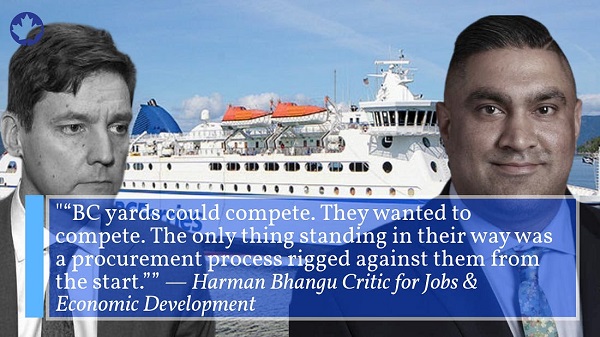
 Business1 day ago
Business1 day agoJobs Critic says NDP government lied to British Columbians and sold out Canadian workers in billion dollar Chinese ferries purchase
-

 Indigenous2 days ago
Indigenous2 days agoBloodvein First Nation blockade puts public land rights at risk
-
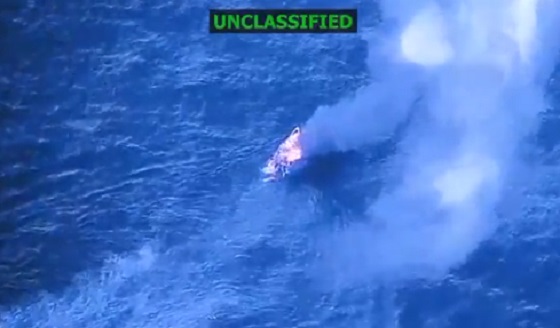
 International2 days ago
International2 days agoTrump says U.S. in ‘armed conflict’ with drug cartels in Caribbean
-

 Automotive14 hours ago
Automotive14 hours agoBig Auto Wants Your Data. Trump and Congress Aren’t Having It.
-
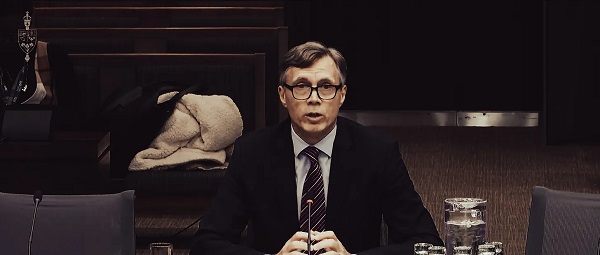
 Business1 day ago
Business1 day agoDemocracy Watch Drops a Bomb on Parliament Hill
-

 Alberta17 hours ago
Alberta17 hours agoJason Kenney’s Separatist Panic Misses the Point
-

 espionage3 hours ago
espionage3 hours agoStarmer Faces Questions Over Suppressed China Spy Case, Echoing Trudeau’s Beijing Scandals


